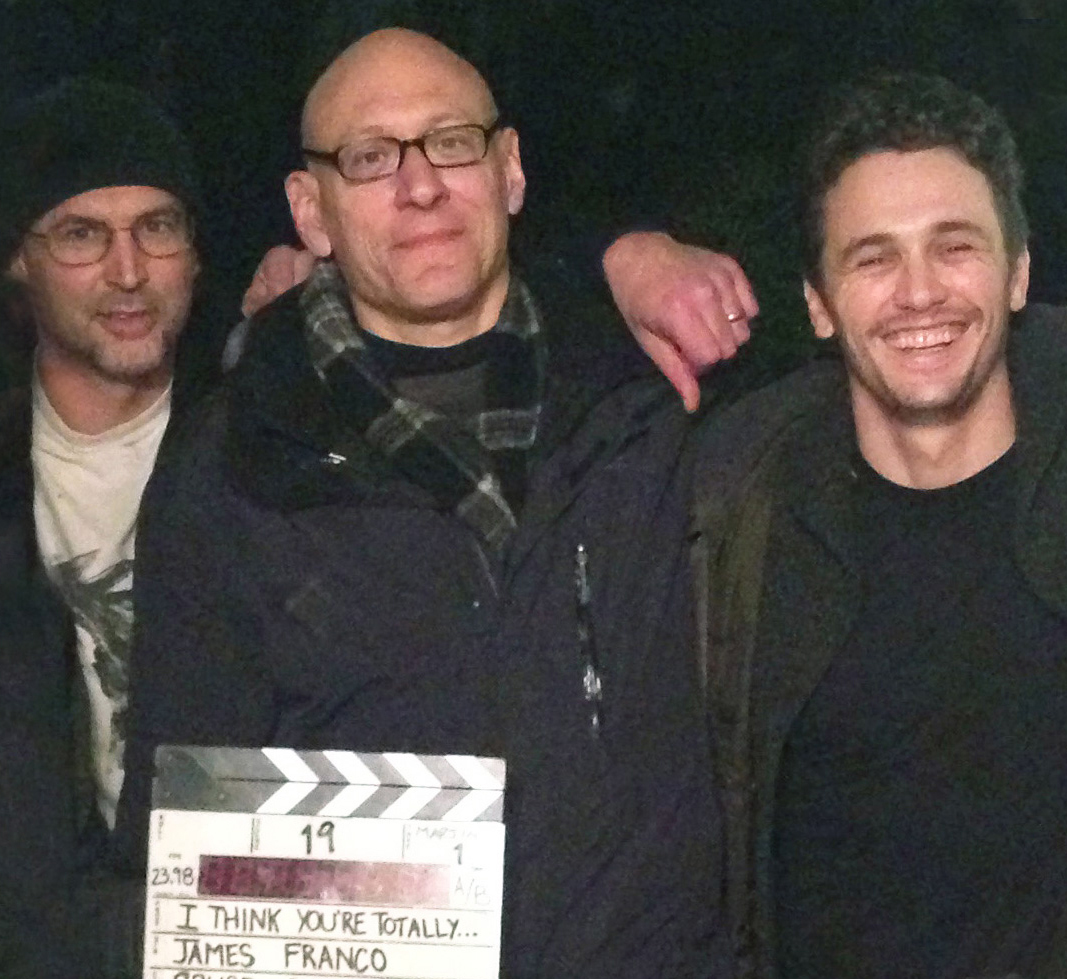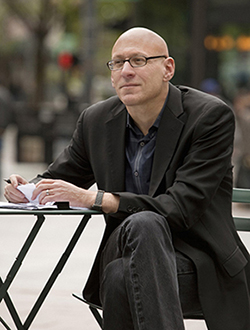“Wildly confrontational.” That’s how UW Professor David Shields describes Caleb Powell (BA, English, 1991) as a creative writing student taking his courses in the early 1990s. “He fought me at every turn. I found him exhausting, to be honest.”
Those same qualities led Shields, professor of English and Milliman Distinguished Writer-in-Residence, to reach out to Powell two decades later. He invited Powell to participate in an unusual project—a free-wheeling four-day conversation between the two men, covering everything from marriage to quotable authors to the sacrifices one makes for art. The result is I Think You’re Totally Wrong: A Quarrel, published by Knopf in January 2015. A film version of the book, directed by James Franco (yes, that James Franco) will premiere at the DOXA Documentary Film Festival in Vancouver, BC on May 3.
Why reach out to a former student who was “aggressively antagonistic” in class? Shields admits to a fascination with books and films about two psyches at war, citing the film Sideways and Didi and Gogo in Waiting for Godot as examples. “Yin and yang. Light and shadow,” he says. “I’ve always loved that form, so I wanted to do a book like that. And I was at a point in my life where I wanted someone to really question me.”

Shields and Powell had emailed occasionally through the years, always with an edge to their interactions. Powell was openly critical of Shields’s recent books, and Shields was not a fan of Powell’s work. Their life choices also diverged, with Shields immersed in multiple writing projects while Powell chose to focus on being a stay-at-home dad.
“The book jacket frames it as Caleb wanting to become an artist but overcommitting to life, while I wanted to become a human being but overcommitted to art,” says Shields. “That’s ad copy—the truth is that I do have a life and Caleb has artistic impulses—but our conversations did end up being meditations on the dialectic between life and art. Both the book and the movie ask, ‘What are you willing to risk or jettison or endanger in the name of art?’ The book does it through 42 mini-chats. The movie does it through a single extended argument about a single topic.”
We just have an odd, unresolvable tension between us. He makes me laugh and he makes me mad.
James Franco, who had studied with Shields through the low-residency writing program at Warren Wilson College in North Carolina, proposed the film after reading an advance copy of the book. “He and I share certain aesthetic interests—in awkwardness, discomfort, self-revelation, confession, breaking the fourth wall, nakedness,” says Shields. “I showed him the book and he said, ‘This is a movie.’ I thought that, of course, my lookalike Clooney would play me, but Franco said ‘No, you and Caleb will play yourselves.’“
Shields and Powell wrote a screenplay—essentially a condensed version of their book—and headed to a cabin at Lake Arrowhead, California for filming. But a disagreement on the first day changed the structure of the film. Shields chafed at Powell’s unwillingness to talk about certain topics on camera after boasting about them off camera, which led to a heated debate about boundaries between life and art. Shields argued that full disclosure is essential to artistic integrity; Powell adamantly disagreed.

“When the argument broke out, Franco said, ‘Let’s throw out the script and pursue that,’” recalls Shields. “And at that point, to me, the film came alive.”
While the conversation may have shifted, Shields and Powell still faced the daunting task of maintaining a conversation for days—for the second time in two years. Fortunately both men were up for the challenge.
“Both of us like to fill the room with language,” says Shields. “Neither of us can shut up.” In both the book and film, they taunt each other but also find common ground as devoted husbands and fathers and avid readers. There’s humor and a grudging respect along with disagreements and frustration. “We just have an odd, unresolvable tension between us,” says Shields. “He makes me laugh and he makes me mad.”
Shields looks forward to the film’s premiere and hopes that viewers, watching him and Powell grapple with their life choices, are inspired to look at their own lives. “Life is serious business,” says Shields. “We all have only one shot. We all make a series of decisions that are fraught with their own excitement and terror. To me, the book and film are about Caleb and me confronting those decisions. There’s no one right answer. I’m not more right than Caleb is. I hope our conversations urge people to confront the existential journey of their lives—and the tragicomedy of choice.”